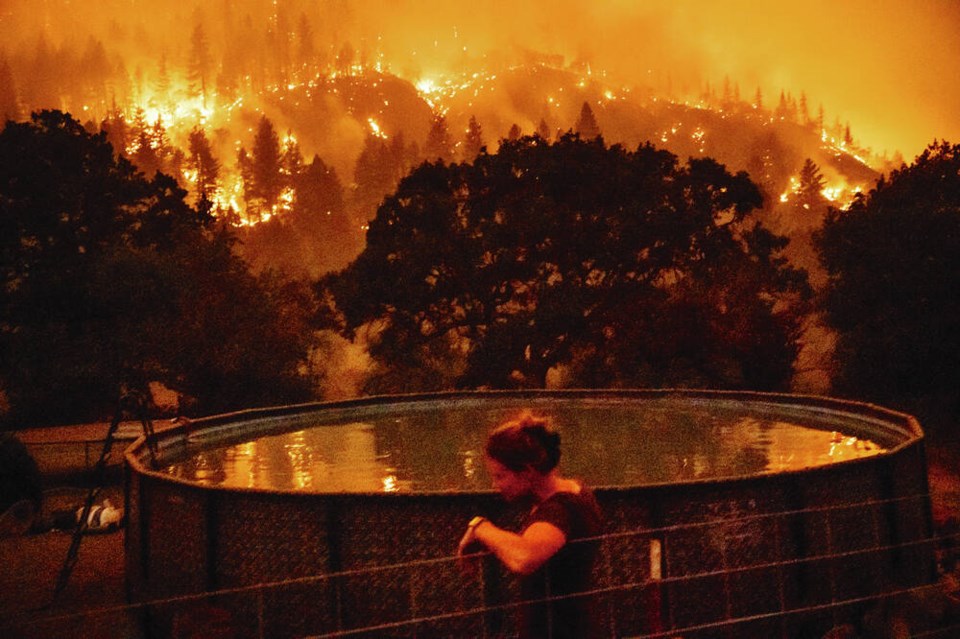One of my professional roles throughout most of the 1980s and 1990s was that of a health futurist.
Often that involved working with scenarios of plausible alternative futures.
In addition to helping people understand the implications of past, current and future actions, these scenarios are useful in exploring their values with respect to the future and helping them identify a preferred future they would want to create.
Among the range of scenarios, we always included one or more that dealt with societal decline or collapse. It was, of course, nobody’s preferred future, but that did not make it implausible — in fact, it was often rated among the more plausible futures. It was, however, the future that people were least interested in understanding or exploring — and that is a problem.
As I noted last week, a number of recent reports give added credence to the notion that we are in deeper trouble than we have yet recognized. But while I focused on the possibility of a cascade of climate tipping points leading to catastrophic climate change, I also noted that climate change is but one of the many human-induced challenges we face.
A paper published last month by the Cascade Institute at Royal Roads University (for transparency, I am a member of the Institute’s Scientific Advisory Board) lists the following global systemic risks we face: “climate heating, biodiversity loss, pandemics, widening economic inequalities, financial system instability, ideological extremism, pernicious social impacts of digitalization, cyber attacks, mounting social and political unrest, large-scale forced migrations, and an escalating danger of nuclear war.”
The problem is that these systemic risks — threats “emerging within one natural, technological, or social system with impacts extending beyond that system to endanger the functionality of one or more other systems” — not only “appear to be increasing in severity … [and] at a faster rate,” they also seem to be happening simultaneously, the report noted.
The institute calls this combination of interacting risks and the crises they engender a polycrisis. While this might be regional or continental in scale, a global polycrisis might result in “runaway failures of Earth’s vital natural and social systems that irreversibly degrades humanity’s prospects.”
Given that polycrises are increasingly plausible and the consequences are so severe, says the institute, we need to pay more attention to them. However, the report notes, while our management of individual crises has often been weak and inadequate, our management — or even our consideration — of a polycrisis is “nonexistent” because we operate in silos and manage crises one at a time, in isolation.
The institute is not alone in its concerns. Similar concerns are raised by Earth4All, “an international initiative to accelerate the systems-change we need for an equitable future on a finite planet.”
Led by an impressive international Transformational Economics Commission and motivated by the 1972 Club of Rome report, The Limits to Growth (which I discussed in June), Earth4All is particularly focused on the need for economic transformation.
Concerned that “the world has ignored the risk of system collapse,” Earth4All will publish its findings in a book due out next month, which it promises will be “a survival guide to help steer humanity away from ecological and social catastrophe.”
While we don’t like to contemplate catastrophe, if we don’t, we can’t hope to avoid it. But as the case of climate change illustrated, our social, scientific and political judgements tend to be conservative.
However, in downplaying the entirely plausible “bad news” scenario and opting for a variant of business as usual, we avoid having to face and deal with the difficult choices and decisions that are needed.
As both the Climate Endgame work I highlighted last week and the reports noted here make clear, we need our governments and international agencies to take seriously the plausibility of polycrises and the ensuing decline or collapse that would result.
Both the Climate Endgame group and the Cascade Institute want serious study of these situations, while Earth4All says: “we need fresh conversations in every home, every school, every university, every city, every parliament. What is the future we want? How can our operating system get us there?”
I think we need to do both, as a matter of urgency.
Dr. Trevor Hancock is a retired professor and senior scholar at the University of Victoria’s School of Public Health and Social Policy



